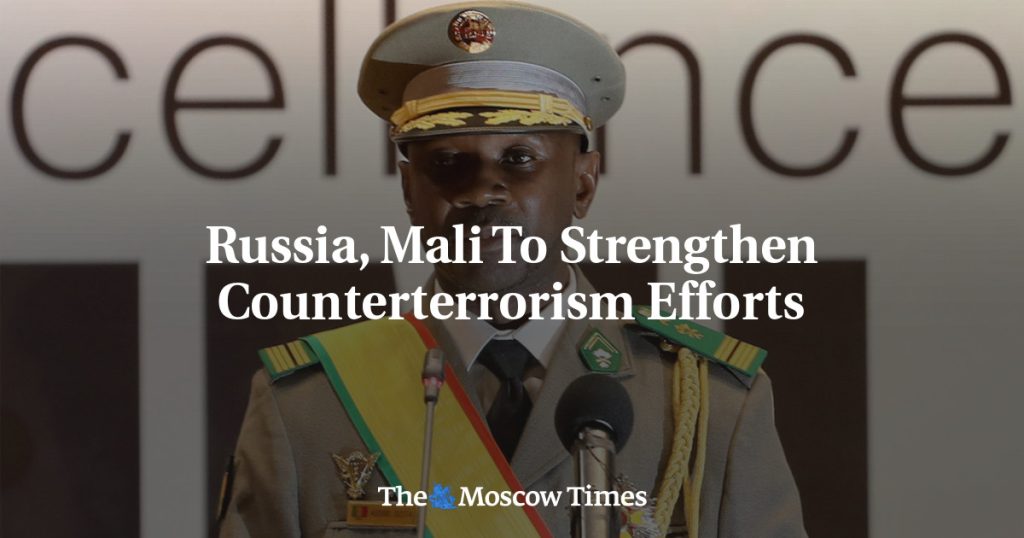Russia and Mali have agreed to strengthen their cooperation in counterterrorism following a telephone call between Russian President Vladimir Putin and the head of the Malian junta, Colonel Assimi Goita. The Kremlin stated that they had agreed to enhance anti-terrorist cooperation, with Colonel Goita also echoing this decision on social media. The Islamic State group claimed responsibility for the attack in Moscow that killed at least 137, leading to the need for increased cooperation in fighting terrorism.
France had previously withdrawn troops from Mali due to coups in 2020 and 2021, causing strained relations. This resulted in Mali forming a political and military partnership with Russia. Russia had been increasing its influence in Africa through the dispatch of fighters from the Wagner mercenary group, which has been serving the Kremlin’s aims in the region since the 2010s. Putin and Goita also discussed strengthening cooperation in energy, agriculture, and mining projects, with Russia providing free deliveries of wheat, fertilizer, and fuel to Mali.
In addition to Mali, Russia has also become the main ally of military regimes in Burkina Faso and Niger, who left a Western African bloc to form a joint defense pact with Mali. This suggests a shifting landscape in the region with Western powers being increasingly sidelined in favor of partnerships with Russia. The Kremlin’s involvement in resource-rich Africa through military partnerships and economic cooperation indicates a broader strategic move to expand its influence in the continent.
The attack in Moscow carried out by militants claiming affiliation to the Islamic State group underscores the ongoing threat of terrorism in the region, prompting the need for heightened cooperation between Russia and Mali. Putin and Goita’s agreement to intensify their efforts in combating terrorism reflects the shared commitment to addressing this pressing security concern. The Kremlin’s provision of essential supplies such as wheat, fertilizer, and fuel to Mali further cements the strengthening ties between the two nations in various sectors beyond security cooperation.
The withdrawal of French troops from Mali has created a vacuum that Russia has been poised to fill, capitalizing on the political instability in the region to expand its influence and partnerships. The emergence of Russia as a key ally to military regimes in Burkina Faso and Niger further solidifies its foothold in Africa, signaling a departure from traditional Western alliances. The Kremlin’s provision of support and cooperation in various sectors demonstrates a strategic approach to enhancing its presence in Africa and furthering its interests on the continent.
The political and military partnership between Russia and Mali reflects a mutual understanding of shared priorities in addressing security threats and advancing economic development. As Russia continues to increase its footprint in Africa through alliances with other countries in the region, the dynamics of power and influence are evolving, with the Kremlin positioning itself as a key player in shaping the continent’s future. The cooperation between Russia and Mali in counterterrorism and economic projects serves as a model for how collaboration between nations can address complex challenges and promote stability and prosperity in volatile regions like Africa.


